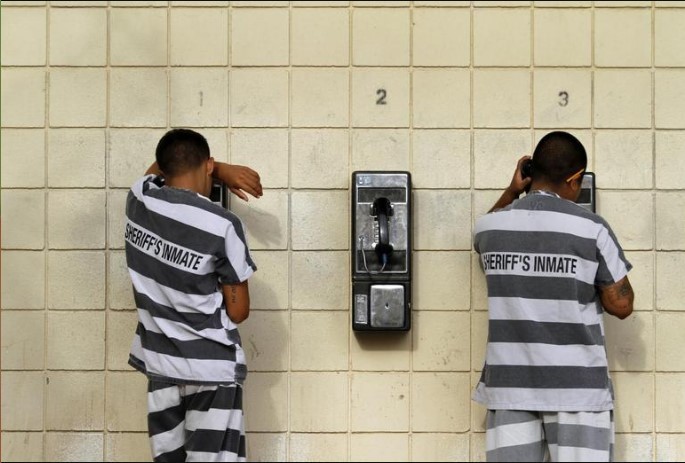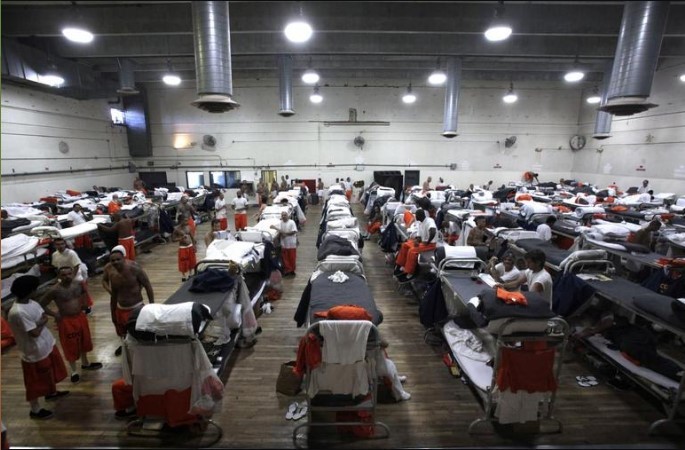Set Us Free: Inmates Call for Freedom Following COVID-19 Outbreak

Many low-level inmates across the country have been let out of their prisons as COVID-19 sweeps through the nation. Hard-timers are now seeking freedom amid concerns tightly packed populations in prisons could lead to a drastic wave of coronavirus cases and transmission.
New York Mayor Bill de Blasio revealed he plans to release "vulnerable" inmates to prevent the spread of the pandemic in city jails.
Authorities will identify prisoners who are at high risk of contracting severe symptoms based on their pre-existing conditions and other factors. These prisoners, de Blasio said, will be brought out.
The decision comes after an inmate at Rikers Island tested positive hours after a correctional officer was found to be carrying the global health threat.
Authorities are now observing for a possible outbreak at the jail.
The corrections' union is requesting the local government to provide new face masks to corrections officers for better protection against the virus. They are also asking authorities to find temporary shelters for inmates as housing them on the island could lead to a problematic outbreak.
Advocates are calling for the release of inmates aged 50 and above and were considered a low-risk for re-offending.
The city Board of Corrections said New York should follow Los Angeles and Ohio who have started releasing inmates awaiting trial and those serving sentences of less than a year.
More Coronavirus News:
- Coronavirus: The Race For A Cure
- Identifying The Cause of the COVID-19 Pandemic: Ancient Plague and Bad Leadership
- Governor Orders Remote Work for All Government Employees
- US Government Plans to Release Special Funding Amid COVID-19 Spread, Including Checks to Citizens

COVID-19 has yet to cause a widespread outbreak in prisons. The US has over 7,000 correction facilities. It's poor sanitary conditions make it an ideal breeding ground as dangerous as nursing homes and cruise ships.
Many facilities have started observing better cleaning methods. Some have temporarily stopped visitations. The measures, however, are still insufficient as most lockups have very poor ventilation. Inmates often sleep in close quarters and share sanitary facilities such as showers and bathrooms.
Brandon Sample, a Madoff attorney, told a news outlet the federal prison system's inability to take action in times of major crises.
Two federal Bureau of Prisons staff members tested positive for COVID-19 on Wednesday--- one of the workers was reportedly employed in a correctional facility in New Hampshire while the other works for an office in Texas.
Health officials have yet to confirm a coronavirus case involving any of the 175,000 inmates in the system. An official number of inmates who have received testing cannot be released as of the moment.
Law enforcement officers all over the country are now incarcerating fewer people. Prosecutors opt to let non-violent offenders walk free earlier than usual. Judges are also postponing jail sentences.
Los Angeles, which has the nation's largest jail system, has released more than 600 prisoners since the end of February. Authorities released inmates who had fewer than a month left in their sentences.
Judges in Cleveland held a special session to settle cases with guilty pleas and see the release of 200 inmates with non-violent tendencies.
Top state attorneys in Miami have also called the local government to identify and release felons who were at low risk for violent tendencies as well as those charged with a misdemeanor.
Subscribe to Latin Post!
Sign up for our free newsletter for the Latest coverage!














